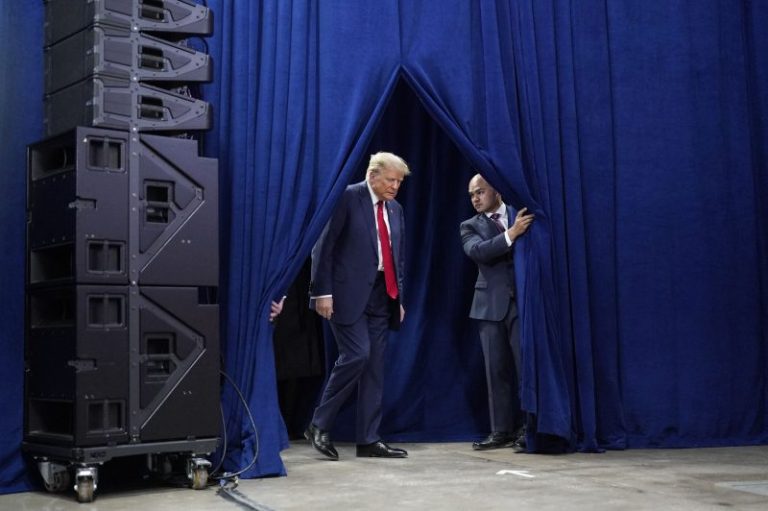U.S. District Judge Aileen M. Cannon on Thursday rejected requests from Donald Trump’s two co-defendants to dismiss the charges against them in the classified document case, ruling that federal prosecutors had met the legal threshold for the obstruction counts.
Attorneys for Trump employees Walt Nauta and Carlos De Oliveira had argued that the charges should be dismissed, in part, because the indictment accused them of obstructing government efforts to retrieve classified materials from Trump’s property without providing clear evidence that the two men were aware of an ongoing investigation or knew the boxes of documents contained classified materials.
Cannon wrote that any arguments the co-defendants want to make about their lack of knowledge about why Trump allegedly wanted to conceal the boxes from investigators could be used as their defense at trial — but not as a basis to dismiss the case.
“Any particular challenges to the Special Counsel’s evidentiary showing can be made at trial, where the Special Counsel will bear the entire burden of proof as to all essential elements of the obstruction offenses,” Cannon wrote.
Prosecutors say Nauta and De Oliveira misled investigators in their statements and plotted to delete security footage to prevent officials from getting the boxes back from Mar-a-Lago, Trump’s Florida home and private club. Nauta is also charged with crimes related to allegations that he moved dozens of boxes from a storage room at Mar-a-Lago to Trump’s residential quarters as investigators sought to locate them.
Nauta, a Trump aide who still travels with him, and De Oliveira, the property manager at Mar-a-Lago, face eight and four charges, respectively, and have pleaded not guilty.
Cannon could have ruled on the motions based on the written arguments but chose to hold a hearing Friday in her Florida courtroom.
At the hearing, she seemed skeptical of the co-defendants’ requests even as she asked both sides pointed questions about case precedent and evidence.
Motions to dismiss are generally long-shot arguments and rarely granted. The co-defendants had argued that, if Cannon does not dismiss the charges, she should require the government to submit a bill of particulars — a document that would provide more details about the evidence underlying the charges in the indictment.
Prosecutors said the indictment is detailed and a bill of particulars would be an unnecessary burden that would force them to reveal their trial strategies.
Cannon agreed with prosecutors in her ruling. She said that the discovery in this case is “exceedingly voluminous” and that prosecutors handed over to the co-defendants enough evidence to sufficiently build their defense.
“Although there is reason to understand the request for additional specificity as to the ‘boxes’ and their ‘contents,’ even in light of the lengthy Indictment, the Special Counsel is not legally obligated to provide more detail,” Cannon wrote.
Trump has filed more than a half-dozen motions of his own to dismiss the case, with Nauta and De Oliveira tagging on to some of them. Cannon held a hearing on two of Trump’s motions, rejecting both of them, but has not ruled on the others.

